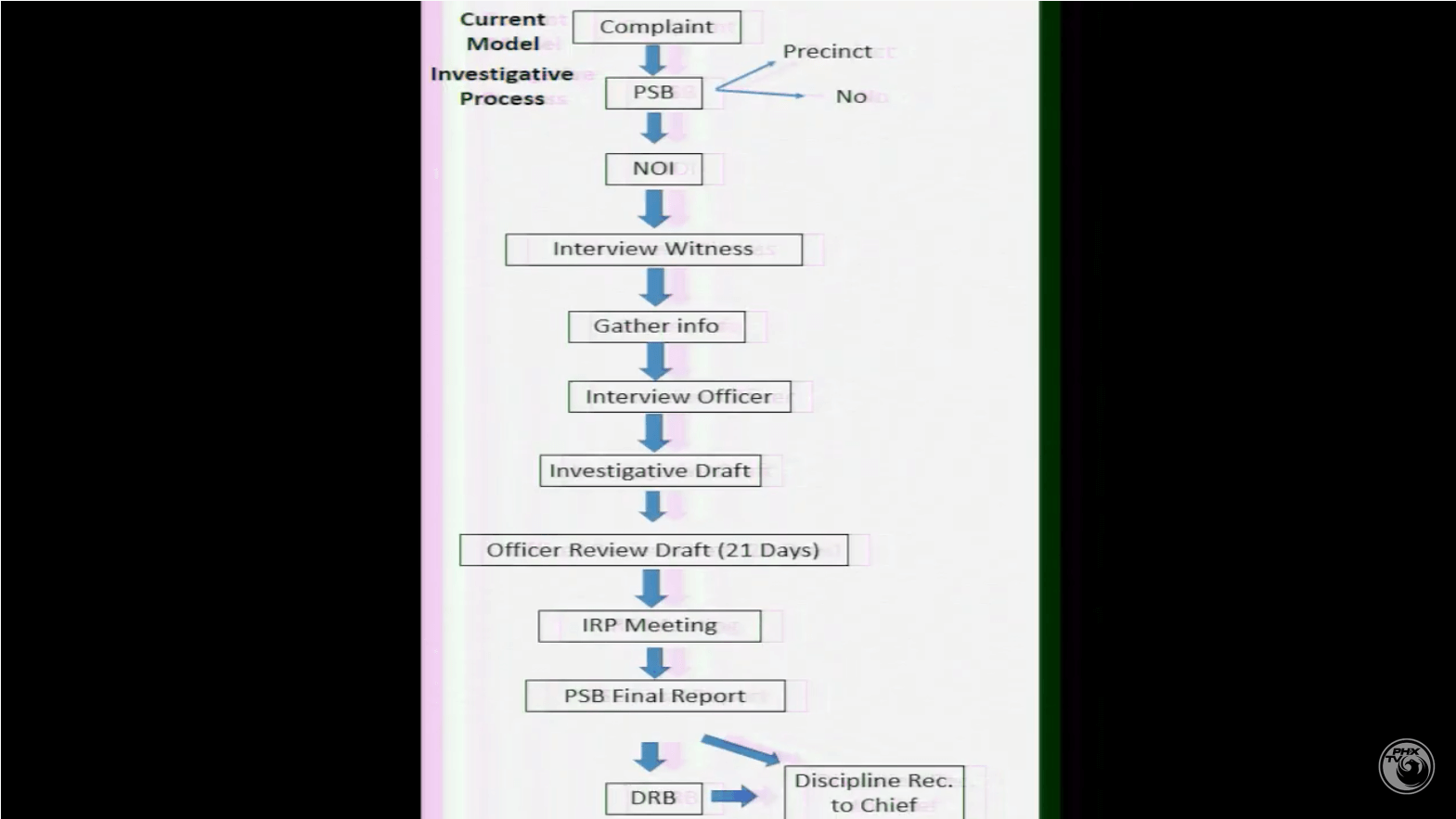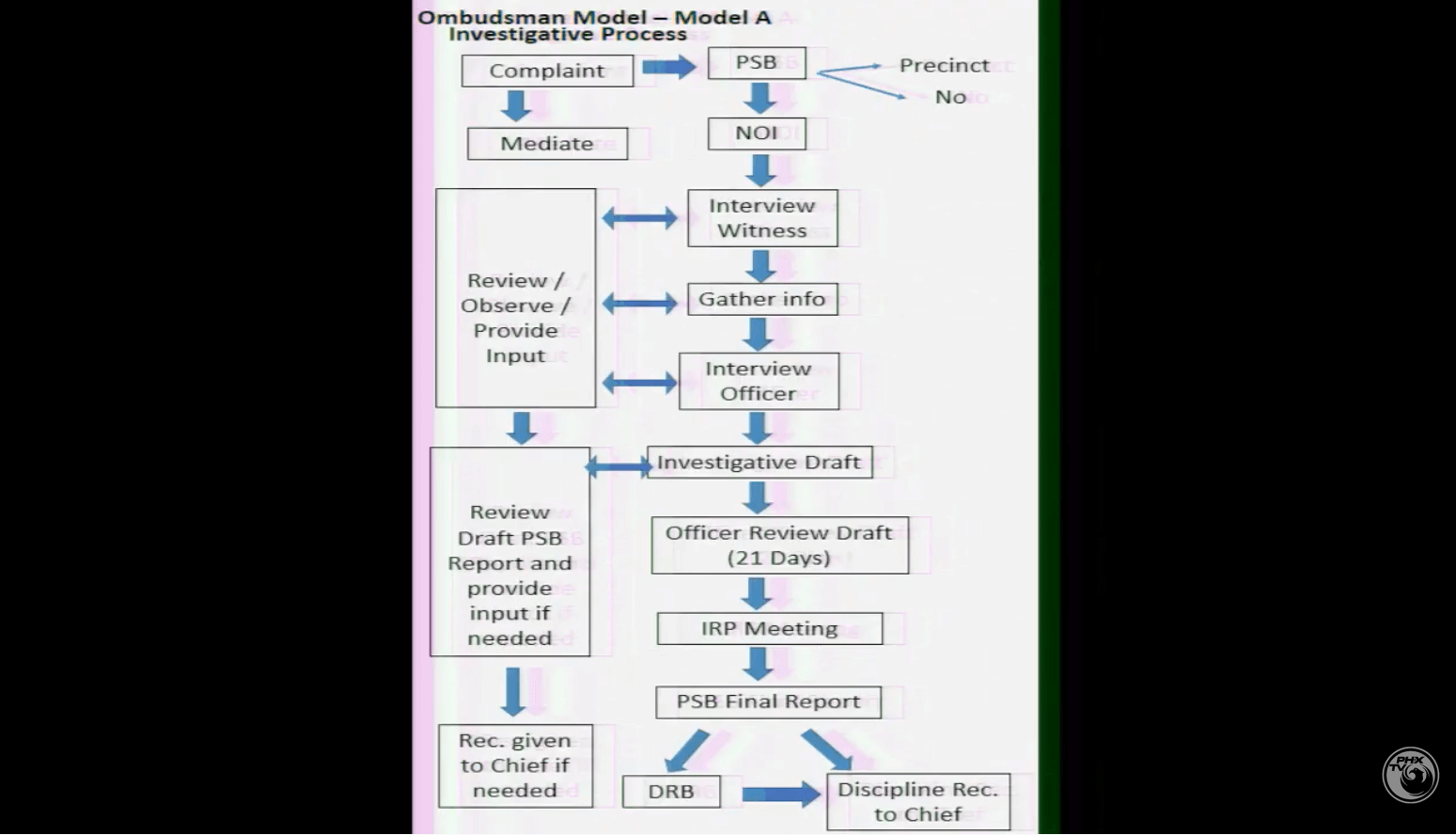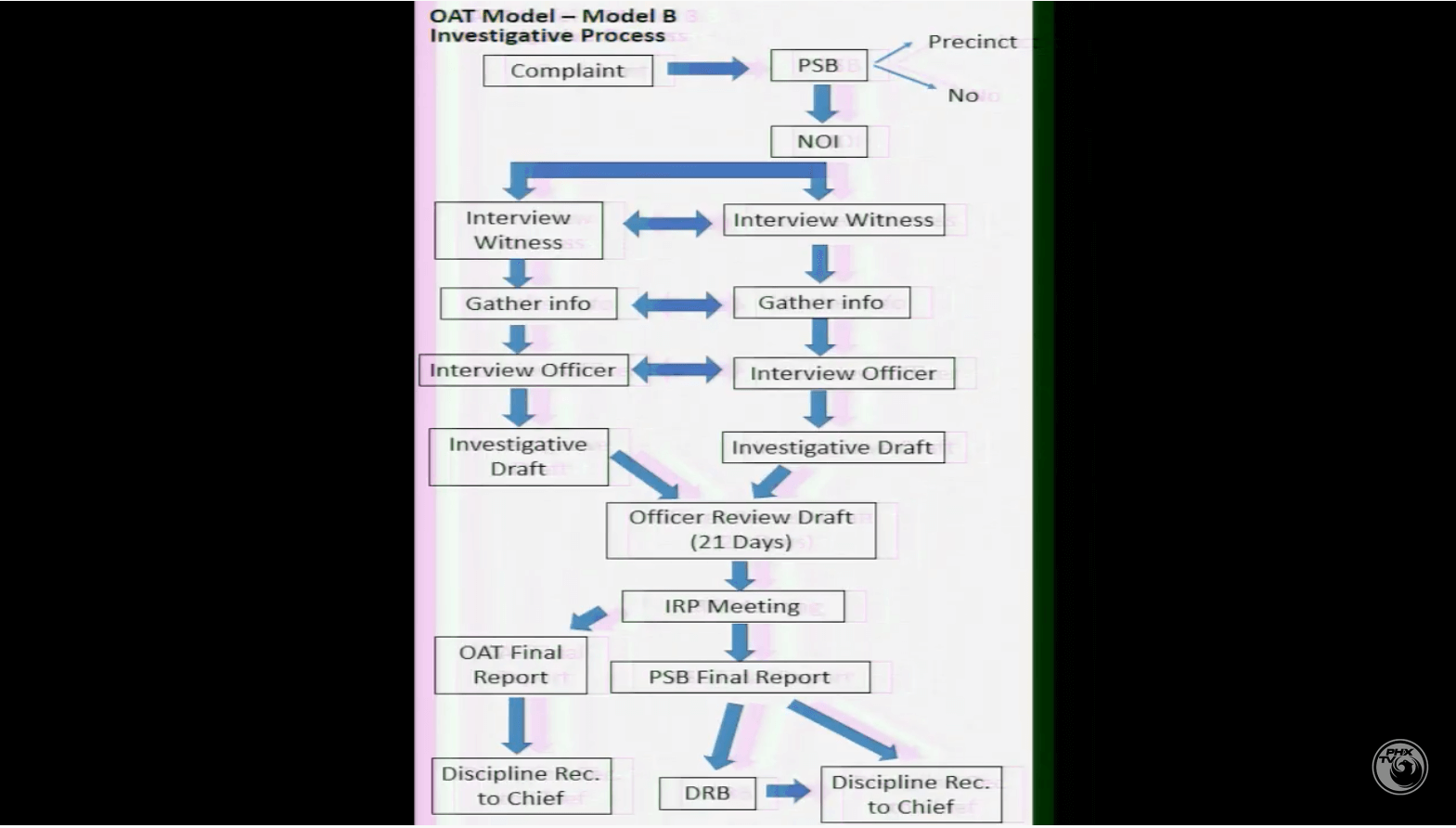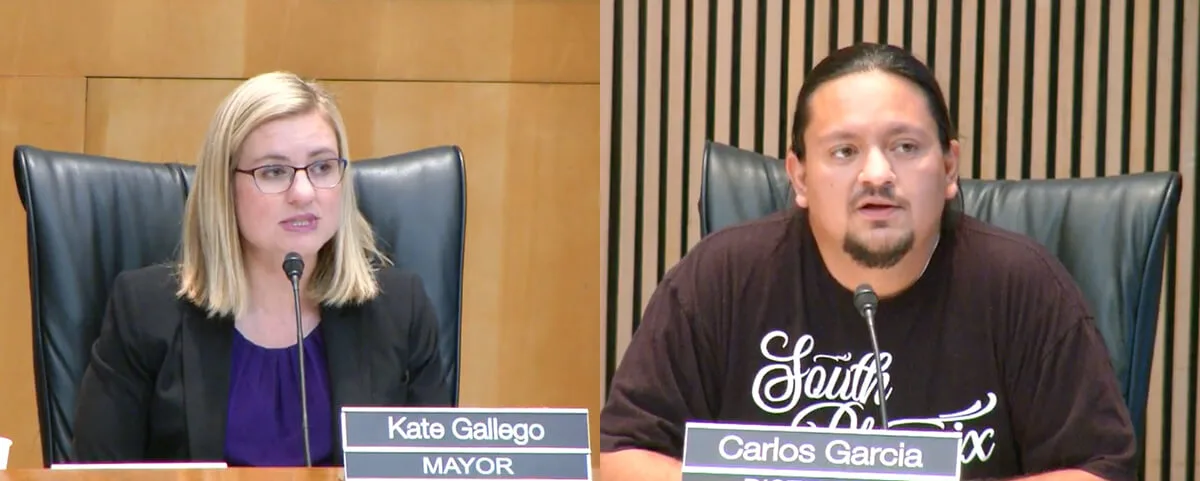
Activists who have long worked to increase civilian oversight of police in Phoenix powered their way to a big win Tuesday night.
Phoenix City Council voted 5-4 in a policy session to approve Councilman Carlos Garcia’s plan for civilian oversight of the police department.
The Council was considering two plans to address resident’s concerns over lack of police oversight: Garcia’s proposal, and one introduced by Mayor Kate Gallego. In a surprise move, Gallego ended up ditching her plan to support Garcia’s, giving it enough votes to pass.
Gallego’s plan would have created an ombudsman position (a civilian appointed by the city manager) and a community relations board to assist in overseeing investigations of complaints against police, while Garcia’s plan would create a community review board and a civilian oversight office.
The big difference between the two plans is the degree to which the new parties would be involved in the Professional Standards Bureau (PSB) investigations.
Under Gallego’s plan, the ombudsman could provide input — for example, putting forth questions for witnesses and officers — without actually taking part in interviews. The ombudsman would then review the PSB’s final report and make disciplinary recommendations to the police chief, who would have the final say.
However, Garcia’s plan would allow the civilian oversight office to conduct its own investigation alongside the PSB. Both parties would interview witnesses and officers, gather information, create final reports and make disciplinary recommendations to the chief.
Many advocates for police accountability, including groups like the Puente Human Rights Movement (which Garcia helped found), Poder in Action, and Black Lives Matter, favored Garcia’s plan because it gives more power to the party responsible for oversight. Poder in Action said Monday on Twitter that the mayor’s plan “ignores the pain of mothers who have lost their children to police violence.”
Public testimony during the Council’s policy session lasted more than three hours, with the majority of commenters supporting Garcia’s plan.
“To give your constituents anything less than that, you are not serving the people,” one member of the public said.
Some, however, testified in support of Gallego’s plan. Kevin Robinson, a criminal justice instructor at Arizona State University and former assistant police chief, called her plan “more fair and more just.”
Representatives for the Phoenix Law Enforcement Association and the Phoenix Police Sergeants and Lieutenants Association denounced both plans, saying they were unnecessary and potentially harmful by giving people without experience as police officers too much power in investigations.
“Neither model shows how you will put distrustful minds to ease,” PLEA President Britt London said.
Councilman Sal DiCiccio, who left the session and later called in his vote, said he didn’t support either plan because they “would follow the line that our police officers have done something wrong.” Councilmembers Jim Waring, Thelda Williams, and Debra Stark joined him in voting against both proposals.
Along with Gallego and Garcia, Councilmembers Laura Pastor, Betty Guardado, and Michael Nowakowski voted yes.
Activists celebrated their victory, thanking the community members who shared their stories.
“This doesn’t bring back the people we’ve lost to police violence,” a member of Poder in Action said after the vote. “This doesn’t take away the pain of women who have been sexually assaulted by officers in this department … but it’s a start and we did this.”
Calls for reform escalated after Phoenix police shot a record number of people in 2018, totaling 22 deaths and 22 injuries. Body camera footage of an incident in summer 2019 that showed officers leg sweeping a handcuffed man and swearing at his pregnant fiancee and two young children also ramped up frustration.
Public outcry prompted Phoenix City Council to discuss the issue at four meetings throughout the latter half of 2019. These discussions led to the formation of Garcia and Gallego’s oversight proposals.
The pushback also led Chief Jeri Williams to commission a study by the National Police Foundation and Arizona State University to analyze the increase.
In August 2019, Williams announced three changes to the department based on the results: equipping all officers with body cameras, training more officers in mental health crisis intervention, and requiring officers to track each time they point a gun at someone.
The total number of Phoenix police officer-involved shootings dropped last year to 15, a 66% decrease over the previous year.
It is unclear when the new oversight rules will go into effect.
Politics
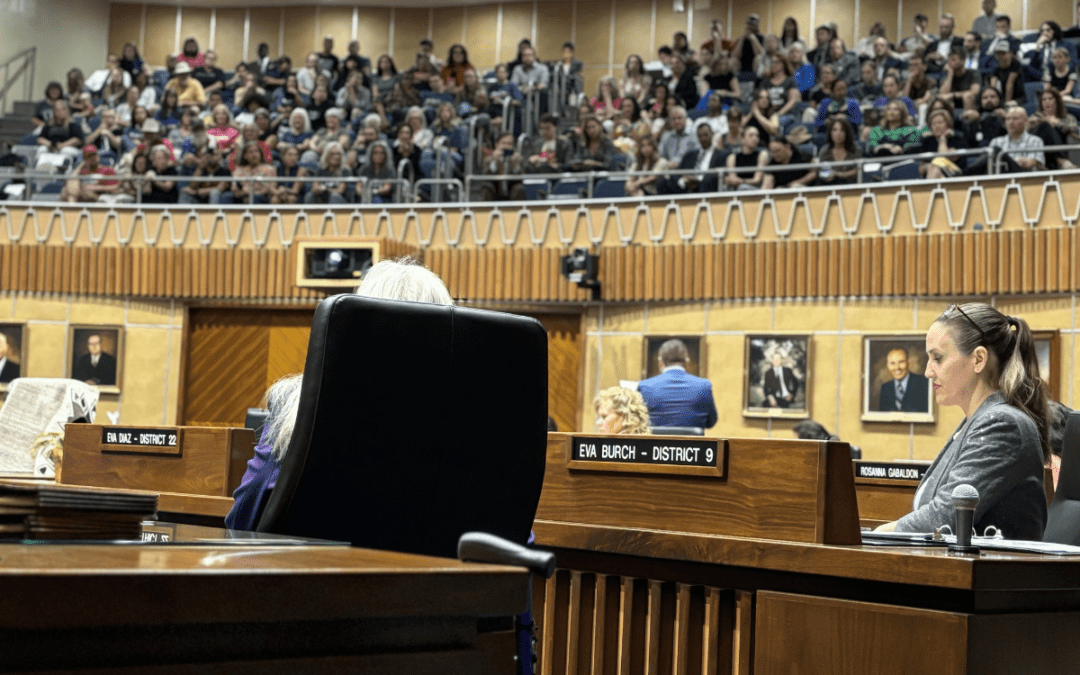
Democrats successfully force vote on repealing 1864 abortion ban, passes House
The Arizona legislature moved forward two bills Wednesday that would repeal the state’s 1864 abortion ban. A bill to repeal the ban has been...

State Official: 1864 abortion ban gives Arizona ‘black eye’
Arizona’s role at the forefront of the climate crisis, defending democratic elections, and protecting reproductive rights has caught the attention...
Local News
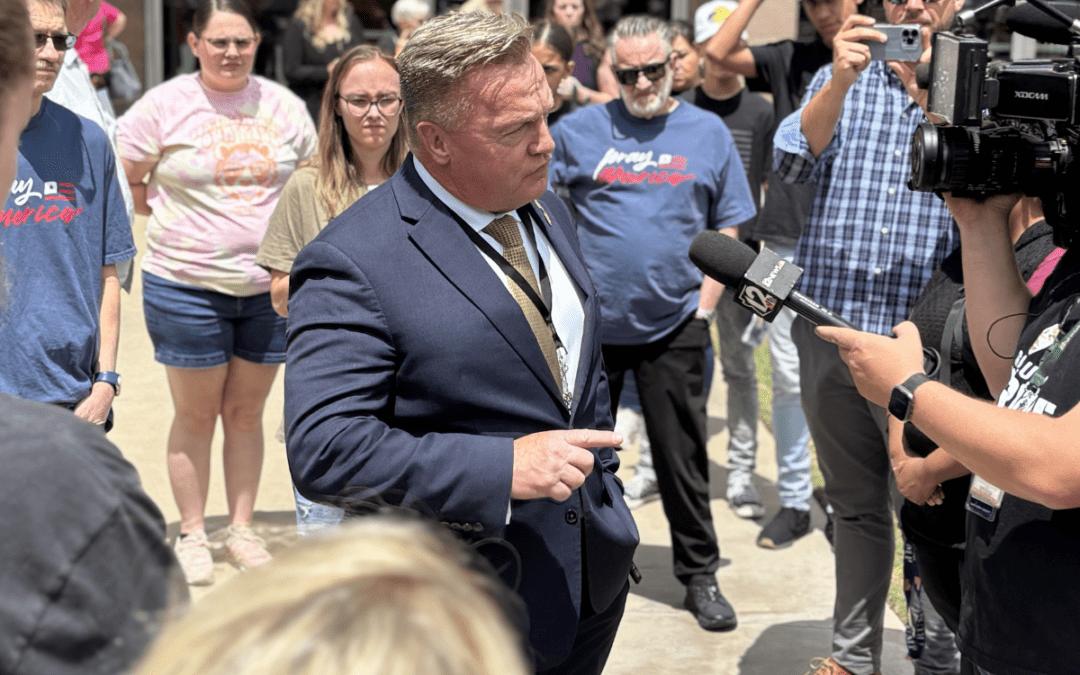
Arizona Sens. Anthony Kern, Jake Hoffman, indicted for fake election scheme
Eighteen individuals involved in a conspiracy to overturn Arizona’s election results in 2020 were indicted by a grand jury Wednesday and charged...
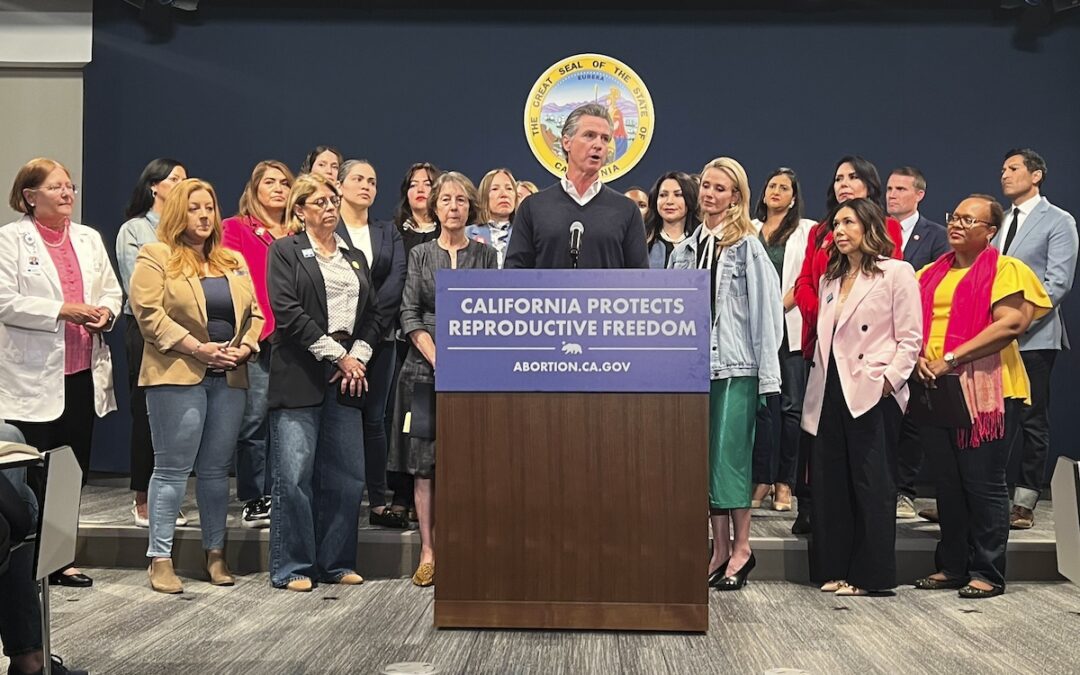
Gov. Gavin Newsom wants to let Arizona doctors provide abortions in California
California law generally allows abortion up to the point of fetal viability, which is around 24 weeks. SACRAMENTO, Calif. (AP) — Arizona doctors...

